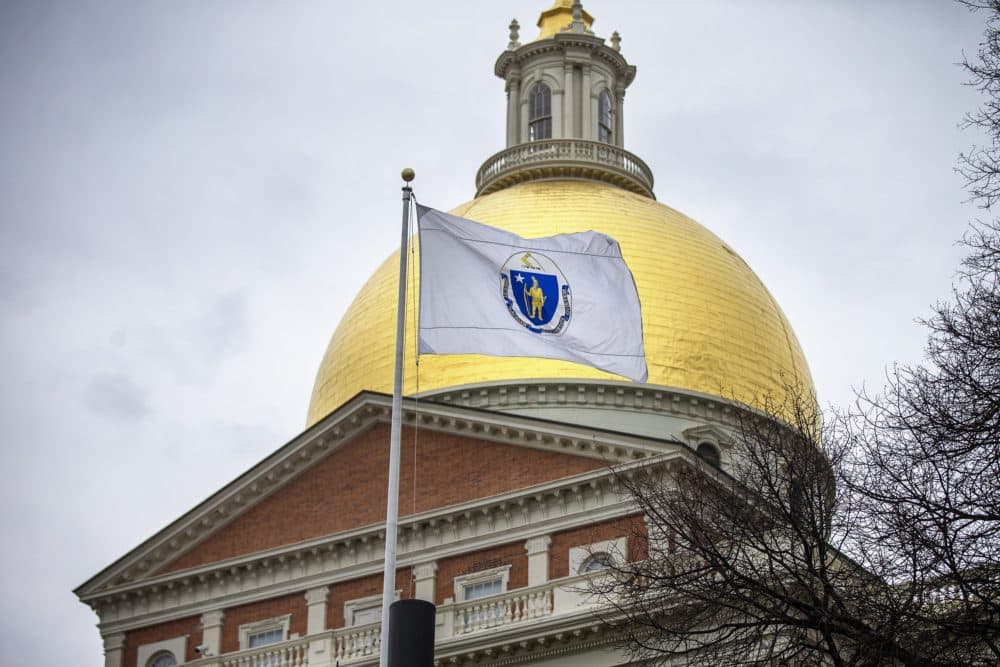Advertisement
Coronavirus Coverage
Pandemic Spending Bill Reaches Gov. Baker

The approximately $1.1 billion COVID-19 spending bill sent to Gov. Charlie Baker on Thursday directs money toward a wide slate of programs and organizations, including the health care system, homelessness prevention, child care providers, elections, food banks, addiction treatment services and more.
The bill includes hundreds of millions of dollars for some of the more obvious COVID-19 costs, like $350 million for personal protective equipment, $85 million spent on field hospitals and shelters, $44 million for the state's contact tracing collaborative, and more than $111 million in supplemental payments to hospitals and providers.
It also contains funding meant to help companies affected by the pandemic and the state's orders to close all non-essential businesses. The bill calls for $10 million to go to the Massachusetts Growth Capital Corporation (MGCC) to provide grants to businesses with 50 or fewer employees to help cover payroll and benefits, mortgage interest, rent and utilities.
The MGCC is directed in the bill to prioritize grant funding for companies that focus on reaching underserved markets, are women-, minority- or veteran-owned, and have not received aid from federal COVID-19 relief programs.
The Baker administration has said that many of the pandemic-related appropriations will be mostly reimbursed by the federal government, and the governor has warned that Massachusetts is in a race with other states to access a limited pool of resources available for reimbursement.
He said his administration could not pursue funding until the Legislature finished the bill, which the governor initially filed back on May 12.
If Baker signs the bill as expected, the state would direct $3 million to summer camps and youth programs that are operating this summer "to provide adequate and appropriate accommodations in a manner that is consistent with the safety protocols necessary to mitigate the spread of the 2019 novel coronavirus pandemic."
The legislation grants the Department of Early Education and Care $500,000 "to leverage state funding by working with philanthropic and private partners in order to assist the business and technical needs of early education and care providers in the commonwealth during the reopening and recovery process."
That Early Education and Care Public-Private Trust Fund would include money directly appropriated by the Legislature and gifts, grants and donations, and would provide statewide and regional training and make available opportunities for providers and stakeholders to assess and share best business practices relative to early education and care reopening efforts.
The bill also includes $5 million for COVID-related elections costs, which Secretary of State William Galvin said "would probably get us going" toward his office's new requirement to send out applications for mail-in ballots for the 2020 primaries and general election.
Under a new state law, Galvin's office had a July 15 deadline to send applications for mail-in primary ballots, but the state's elections overseer said that he could not send out the applications until the Legislature provided funding for postage. On Tuesday, Galvin told State House News Service that he had begun to mail applications after the governor's office agreed to advance him some of the funds included in the COVID-19 supplemental budget.
Supreme Judicial Court Justice Frank Gaziano is scheduled to hold a hearing at 2 p.m. Friday to consider an emergency lawsuit filed against Galvin by a group of Massachusetts voters and voting rights organizations. One plaintiff told the News Service on Thursday that Friday's hearing is still on and that the plaintiffs plan to press on until every single vote-by-mail application has been sent out to voters.
Also in the legislation is $139 million for rate add-ons for human service providers, including congregate care facilities, $93 million for incentive pay for workers at facilities that are open 24 hours a day, $36 million for the emergency child care centers the state established prior to the reopening of the entire secot, and $13.5 million to help local housing authorities deal with the impacts of the pandemic.
Though the supplemental budget bill is primarily focused on pandemic-related costs or addressing issues that were exacerbated by the crisis, it also makes a significant change to the calendar.
A section of the bill would designate June 19 as a state holiday known as "Juneteenth Independence Day," commemorating the end of slavery in the United States. That designation gained favor with lawmakers last month amid the nationwide demonstrations that grew out of the killing of George Floyd in Minnesota and renewed discussions about race in America.